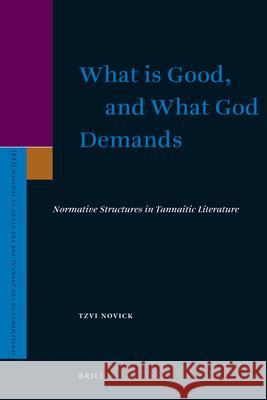What Is Good, and What God Demands: Normative Structures in Tannaitic Literature » książka
What Is Good, and What God Demands: Normative Structures in Tannaitic Literature
ISBN-13: 9789004187580 / Angielski / Twarda / 2010 / 260 str.
The normative rhetoric of tannaitic literature (the earliest extant corpus of rabbinic Judaism) is predominantly deontological. Prior scholarship on rabbinic supererogation, and on points of contact with Greco-Roman virtue discourse, has identified non-deontological aspects of tannaitic normativity. However, these two frameworks overlook precisely the productive intersection of deontological with non-deontological, the first because supererogation defines itself against obligation, and the second because the Greco-Roman comparate discourages serious treatment of law-like elements. This book addresses ways in which alternative normative forms entwine with the core deontological rhetoric of tannaitic literature. This perspective exposes, inter alia, echoes of the post-biblical wisdom tradition in tannaitic law, the rich polyvalence of the category mitzvah, and telling differences between the schools of Akiva and Ishmael.











